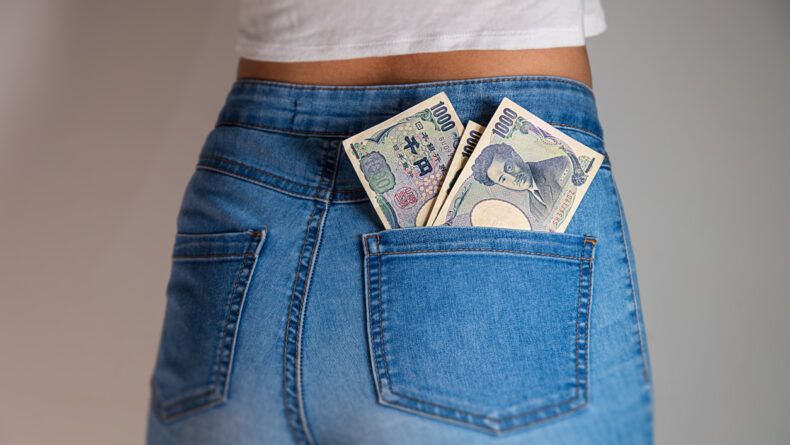Stretch Your Yen: Budget Tips for Women Working in Japan
5 Easy Ways to Save Cash, Time and Stress
Saving money while dealing with a full-time job can seem tough, but tiny changes can reap big rewards.
Japan is a land of temptations and pricey convenience. With all the 24-hour conbini, incredible department store food courts and easy public transportation, it is easy to overspend without realizing it.
But getting serious about saving (and hopefully investing!) your hard-won cash doesn’t have to be difficult. I have cut costs and improved my savings rate with a few simple changes, none of which have left me feeling deprived or overly frugal. Here are five tips to help you save some extra cash every month.
1. Pack your own obento

Let me preface this by saying: I don’t like cooking. The fact that we have to come up with new meals every day is just such a drag! However, by tracking my expenses for a couple of months I realized that I dropped almost ¥5,000 a week on lunches and snacks bought throughout the workweek. That is ¥20,000 per month!
My lazy but effective method for cutting costs: Sunday afternoon food prep. I whip up big batches of two or three foods that keep well (such as chili, grilled veggies, stir-fries and curry), along with a bunch of rice. Voila’, bento ingredients and evening meals done in just over an hour. Just wash out and pack your bento box the previous night, and you are good to go for most of the week. You can also do this with salads, soups, and even sandwiches. Not only do you save money, but it’s also healthier than buying your lunch outside.
2. Hell on high heels

Mötley Crüe references aside, running around in heels all day makes the plastic heel coverings on our shoes wear down quickly. If you are anything like me, every two months or so you hear the horrible crunch of the metal part of your heels rasping across the pavement. Getting shoes re-heeled can cost around ¥1,500 to ¥3,000 depending on the level of damage, and the effect is only temporary.
The solution: only wear heels when necessary. Wear flats for your commute, getting to appointments, running around the office and less formal meetings, then just switch to heels for situations in which they are required. You can either leave a pair at the office or carry them with you. Besides the economic benefits, your feet will thank you as well.
3. Switch to non-iron shirts

If you have to wear collared shirts for work (or your partner does), you know how dry cleaning bills can really pile up. Personally, I am also not a big fan of chemical cleaning, as well as being terrible at remembering when to pick up clothes from the cleaners. If you are one of those saintly people who actually wash and iron shirts, then the time spent on that chore can also become a drudge that eats into your free time.
However, fashion and technology have come together with an easy way to drop those costs for good: non-iron shirts. Just wash them, hang them up to dry and they come out looking perfect! I am a particular fan of Foxcroft shirts, but you can also buy them from Lands’ End’s Japanese site or local online retailers like Belle Maison, Cecile or Nissen. Just switching to non-iron shirts saves me around ¥20,000 a year in dry cleaning fees, and has saved my partner almost three times that.
4. Buy in bulk

Feminine hygiene products are ridiculously expensive everywhere, but particularly so in Japan. Just the thought of paying around ¥700 to ¥1,000 for tampons every month for decades annoys the living daylights out of me.
To get around this, buying in bulk on Amazon has proven to be a great way to save money, as well as time and mental energy — no more worrying if I am stocked up! You can buy huge boxes for under ¥800, with a year’s supply coming in around ¥4,000. Another option worth experimenting with is the famous Thinx underwear, which allows you to skip buying tampons and pads altogether. Although pricey (around ¥4,000 per pair), in the long run, they are likely to save you cash and be more eco-friendly!
5. Mental Adjustments = Priceless

If you have a stressful job, are busy looking after your kids or caring for an ill family member, it is easy to think that you have the right to treat yourself or splurge on little things that will make you feel better. And Tokyo is just filled with adorable, delicious and helpful things waiting to tempt us. Because we are often tired and burdened with responsibilities, our ability to resist the temptation of ease is impaired. And so we take a cab instead of the train, get a ready-meal instead of eating what we already have in the fridge or buy yet another cover for our phone.
While of course, we don’t need to live like monks, the fact is that small purchases and treats pile up, and can really burn a hole in your wallet. Just taking a few seconds to resist the impulse to buy can help you realize what you are doing, and scale back spending. For instance, I had to rein in my fancy coffee habit, which was costing me up to ¥2,000 per week, as well as my stationery addiction. By still occasionally indulging I avoid feeling deprived, and in fact, enjoy the coffee or brightly-colored pen even more since it is a real treat and not a habit.
Do you have any saving tips that you swear by? Share them in the comments!
















Leave a Reply